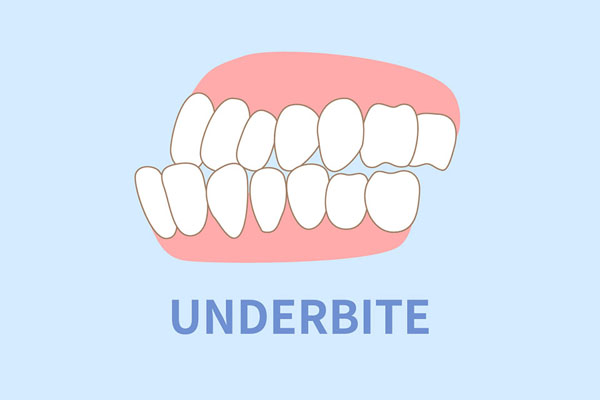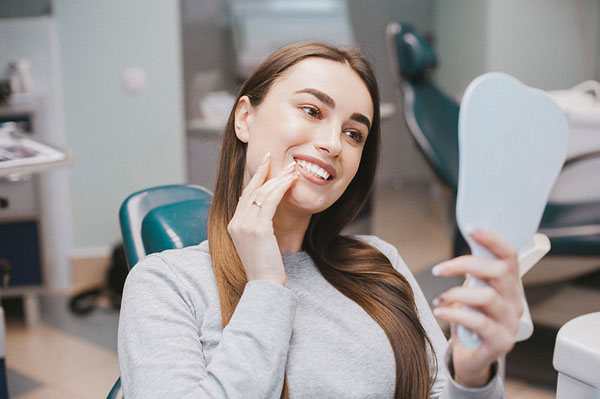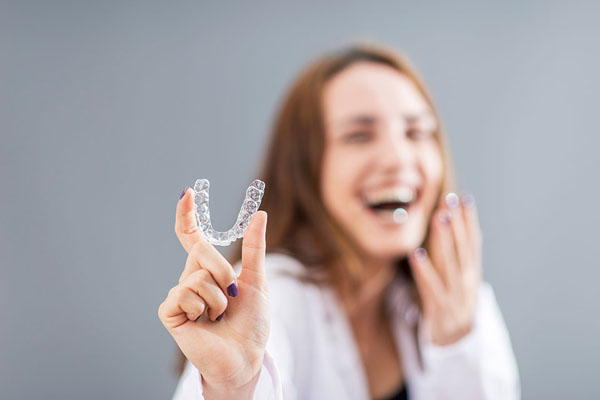Invisalign® and Underbites
Correct Your Underbite and Transform Your Smile With Invisalign
Do you experience difficulty chewing, biting, or speaking properly? You could have an underbite, a common condition that can negatively affect your smile and overall oral health. Fortunately, Invisalign is a modern, discreet, and effective orthodontic treatment that can correct underbites and provide a healthier and more attractive smile.
Dr. Niral Patel, a skilled and experienced dentist in Knoxville, can offer personalized treatment plans that cater to your unique dental needs and help you achieve the beautiful, confident smile you deserve.
What Is an Underbite?
An underbite, also known as prognathism, is a type of malocclusion where the lower jaw (mandible) protrudes forward, causing the lower teeth to overlap the upper teeth when the mouth is closed.
This misalignment can lead to difficulties in chewing and speaking and even contribute to oral health issues such as tooth wear and gum disease. Addressing an underbite early can prevent long-term complications and enhance both your oral health and facial appearance.
For some, an underbite can be treated with Invisalign. To learn more about Invisalign, contact our Knoxville dental office today to schedule your appointment.
What Causes an Underbite?
An underbite is primarily caused by an imbalance in the size or position of the upper jaw and lower jaw. The main factors that can contribute to an underbite include:
- Genetics: This is the most common cause of an underbite. If a person’s parents or close relatives have an underbite, it’s more likely that they will develop one too.
- Habits in early childhood: Certain habits in infancy or early childhood can also contribute to the development of an underbite. These include prolonged use of a pacifier or bottle, thumb-sucking, or excessive use of a sippy cup.
- Tumors or growths: Abnormal growths or tumors in the jaw can lead to an underbite.
- Cleft palate or lip: These conditions can alter the structure of the mouth and jaw, leading to an underbite.
- Injuries: Trauma to the face, especially at a young age, can affect the growth and development of the jaw, potentially leading to an underbite.
- Poor dental health: Missing or extra teeth, or other dental problems, can impact the alignment of the teeth and jaw.
Benefits of Correcting Underbites
When you fix an underbite, you experience several benefits, including:
- Enhanced Facial Appearance: Align your teeth and jaw for a more balanced and attractive smile.
- Improved Oral Function: Correcting an underbite can make chewing, biting, and speaking easier and more comfortable.
- Better Oral Health: Reducing the risk of tooth decay, gum disease, and jaw pain associated with an underbite.
- Boosted Confidence: Achieving a straighter smile can significantly improve your self-esteem and quality of life
How Does Invisalign Fix an Underbite?
Invisalign® offers a discreet and effective solution for mild to moderate underbites. These custom-made clear aligners gradually move the lower teeth back and the upper teeth forward, aligning the upper and lower jaws over time. For some cases, Invisalign aligners incorporate special devices called “precision cuts” to accommodate elastics, providing additional pressure to correct the underbite effectively.
The Invisalign process begins with a consultation with Dr. Patel, who will assess your bite and create a personalized treatment plan using 3D digital scans of your mouth. You’ll receive a series of aligners, each worn for about two weeks, to gradually shift your teeth into the desired position. Regular check-ins with Dr. Patel ensure your treatment progresses as planned.
Invisalign vs. Traditional Braces for Underbite Correction
Invisalign® offers several advantages over traditional braces, particularly for treating underbites. The clear aligners are removable, making it easier to maintain oral hygiene and enjoy your favorite foods without restrictions. Invisalign® aligners are also nearly invisible, offering a more aesthetically pleasing option for those concerned about the appearance of traditional metal braces.
However, severe underbites may require additional treatment methods such as braces or even corrective jaw surgery. Dr. Patel will evaluate your specific condition and recommend the most effective treatment plan for you.
Frequently Asked Questions
Yes, an underbite can cause health problems such as difficulty chewing, biting, and speaking properly. It can also cause jaw pain and increase your risk of developing tooth decay, gum disease, and temporomandibular joint (TMJ) disorder.
Yes, an underbite can be hereditary. If one or both parents have an underbite, their child may be more likely to develop the condition.
Yes, an underbite can often be corrected without surgery through orthodontic treatments such as Invisalign or metal braces. However, in severe cases, surgery may be necessary to correct the misalignment of the bottom teeth.
In some cases, an underbite may be hereditary and cannot be prevented. However, some habits can contribute to the development of an underbite, such as thumb-sucking or prolonged pacifier use in childhood. Discouraging these habits in children may help prevent underbite.
Straighten Your Smile and Boost Your Confidence With Underbite Treatment
Living with an underbite can impact your confidence and oral health, but with Invisalign®, you can achieve a straighter, more balanced smile. Don’t let an underbite hold you back. Contact Dr. Patel and the Knoxville dental team at (865) 687-8670 to schedule a consultation.
We proudly serve patients in Amherst, Marble City, and West Knoxville, helping them take the first step toward a healthier, more beautiful smile.



